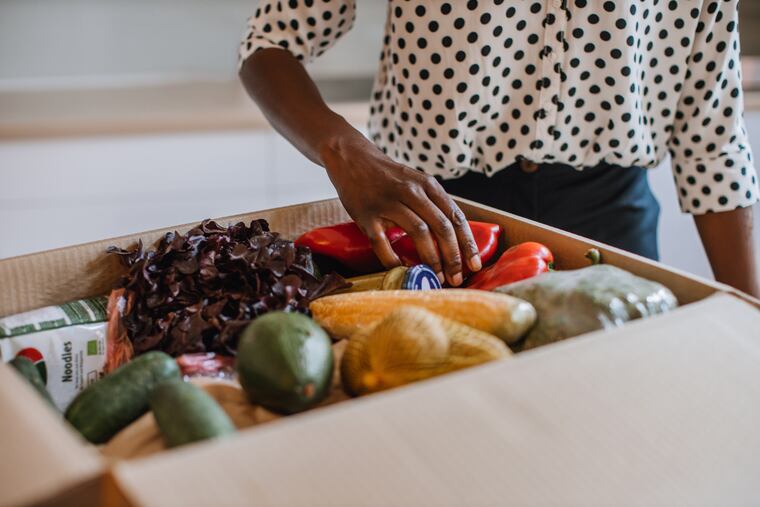A friendly neighborhood fix for food waste in Philly and beyond | Opinion
Americans are estimated to waste a quarter of their food. What about giving that unwanted ice cream to a neighbor instead of throwing it out?

Was only half of your child’s birthday cake eaten, and the remains too tempting to keep in the house? Opened what you thought was Parmesan but turned out to be a cheese blend you don’t want? Rethink what you consider waste and post these perishables to your local Buy Nothing Facebook page. Such was the fate of these hot commodities quickly claimed by neighbors on my community’s page this week.
Here in Philadelphia, various neighborhoods have active Buy Nothing networks that thrive from their members’ generosity and, frankly, open-mindedness. These hyperlocal communities, exclusively composed of neighbors within walking distance, offer a unique solution for food waste while simultaneously creating bonds among neighbors.
Here’s how these groups work: Say you impulsively buy a pint of ice cream on sale, but once reminded of your new year’s resolutions decide you won’t eat it. In this scenario, you would post your pint on the Facebook page and include your street intersection and the timeframe when you are available for pickup, so neighbors can identify whether the trek is worthwhile. Then you wait for those interested to respond.
Since an offer of free ice cream could elicit a lot of interest, you might use a lottery to pick the recipient. Once you choose an heir, they’ll walk over, and after some pleasantries are exchanged, you’ll hand off your goods. Had the gift not been meltable, you might have left it on your stoop, so your recipient could swing by at any time.
The warm glow of gifting your pint instead of letting it go to waste, coupled with strengthened connection to your community, can be surprisingly thrilling. Yet most of us turn to the trashcan in these situations.
Food waste is troubling. In the United States, 40% of food is estimated to go to waste, even as one in eight Americans lack steady access to nutritious food. This startling discrepancy between food supply and food security is further complicated by the environmental impact of waste. Global food waste accounts for 8% of greenhouse gas emissions. A Washington Post op-ed recently noted that “if food waste were a country, it would come in third after the United States and China in terms of impact on global warming.”
While food waste occurs at every level of the supply chain, private households are a key contributor. In fact, Americans trash about 25% of the food and beverages they purchase, a quantity that can cost an average family of four $1,365 to $2,275 annually. The energy and greenhouse gas emissions associated with that food’s creation, processing, distribution, refrigeration, and preparation were ultimately in vain.
» READ MORE: The frustrating charade of recycling in Philadelphia | Opinion
Hyper-local food sharing through digital outlets such as Buy Nothing, or Olio – a trendy London-based app committed to a local food-sharing revolution – surely won’t fix the global environmental burden of food waste. But experimenting with this solution is a start, and may provide additional value beyond reducing your household’s carbon footprint.
While social media often alienates people from one another, these digital outlets actually enable us to create real connections within our neighborhoods, especially those of us in densely populated areas. For example, days before I had a stressful move, three separate Buy Nothing community members generously dropped off different items I had claimed from them on the Facebook group. Veronique, a Graduate Hospital Buy Nothing member, shared: “I see endless examples of neighbors supporting one another through Buy Nothing. … It creates a sense of belonging as well as connectedness.” Watching, accepting, or providing in this generosity with people in your immediate neighborhood is uplifting, even inspirational.
Whether your 6-year-old persuaded you to buy a box of granola bars and promptly started disliking them when you got home, your holiday visitors left you with more food than your household can handle, or you’re facing some other food dilemma, consider sharing your goods with neighbors rather than tossing them in the trash. You might just enter this new decade with a renewed sense of community.
Dana Max is a master of behavioral and decision sciences candidate at the University of Pennsylvania.